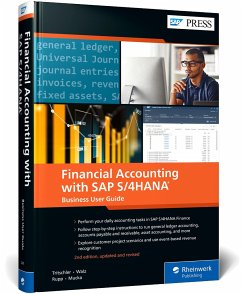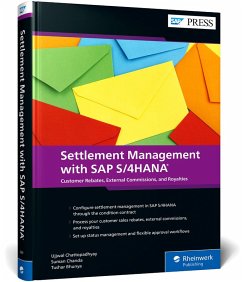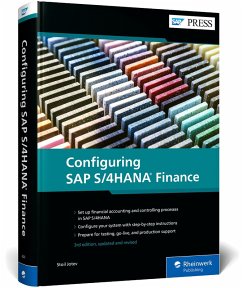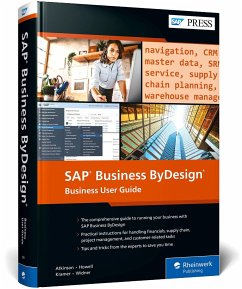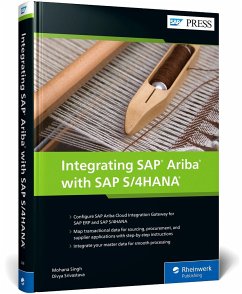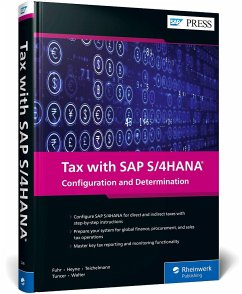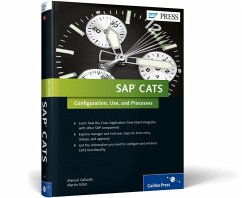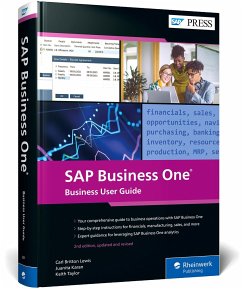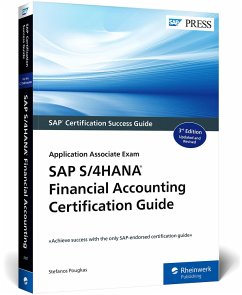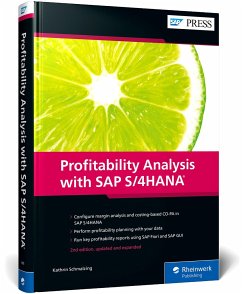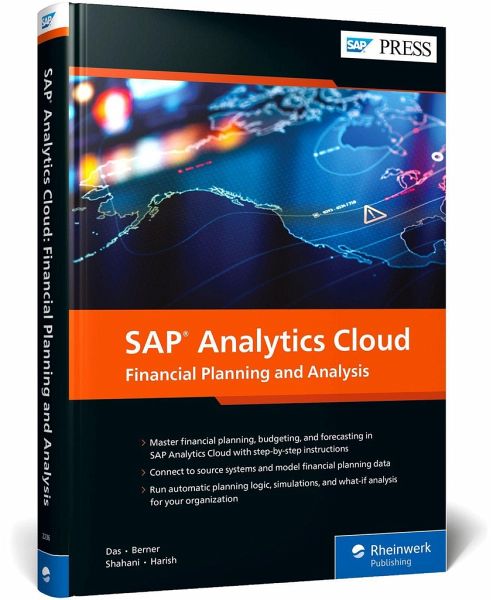
SAP Analytics Cloud: Financial Planning and Analysis
Versandkostenfrei!
Sofort lieferbar
68,99 €
inkl. MwSt.

PAYBACK Punkte
34 °P sammeln!
FP&A is now in the cloud! In this comprehensive guide, begin by provisioning your data for financial planning and analysis in SAP Analytics Cloud. Then follow step-by-step instructions to set up the planning process and use SAP Analytics Cloud's automated planning logic to calculate key metrics. Learn how to perform simulations to model what-if scenarios, streamline your planning workflow, and share results with stakeholders. With details on implementation best practices, this is your all-in-one resource!In this book, you'll learn about:a. Defining and Modeling Data Provision and model your FP...
FP&A is now in the cloud! In this comprehensive guide, begin by provisioning your data for financial planning and analysis in SAP Analytics Cloud. Then follow step-by-step instructions to set up the planning process and use SAP Analytics Cloud's automated planning logic to calculate key metrics. Learn how to perform simulations to model what-if scenarios, streamline your planning workflow, and share results with stakeholders. With details on implementation best practices, this is your all-in-one resource!
In this book, you'll learn about:
a. Defining and Modeling Data
Provision and model your FP&A data in SAP Analytics Cloud. Evaluate and configure source connectors, step by step; then model your data metrics and dimensions for planning and analysis.
b. Planning Process
Get planning up and running! Manage your planning versions and inject your own inputs and assumptions into SAP Analytics Cloud. Learn how to run driver-based planning and performallocations and currency conversion.
c. Analysis
Assess your financial data in SAP Analytics Cloud. Explore your reporting and analysis options, use simulations for what-if analysis, and leverage augmented analytics capabilities and predictive scenarios.
Highlights include:
1) Data modeling
2) Planning versions and inputs
3) Automated planning
4) Planning allocations
5) Currency conversion
6) Reporting
7) What-if analysis
8) Simulations
9) Planning workflows
10) Stakeholder groups
11) Implementation
In this book, you'll learn about:
a. Defining and Modeling Data
Provision and model your FP&A data in SAP Analytics Cloud. Evaluate and configure source connectors, step by step; then model your data metrics and dimensions for planning and analysis.
b. Planning Process
Get planning up and running! Manage your planning versions and inject your own inputs and assumptions into SAP Analytics Cloud. Learn how to run driver-based planning and performallocations and currency conversion.
c. Analysis
Assess your financial data in SAP Analytics Cloud. Explore your reporting and analysis options, use simulations for what-if analysis, and leverage augmented analytics capabilities and predictive scenarios.
Highlights include:
1) Data modeling
2) Planning versions and inputs
3) Automated planning
4) Planning allocations
5) Currency conversion
6) Reporting
7) What-if analysis
8) Simulations
9) Planning workflows
10) Stakeholder groups
11) Implementation



